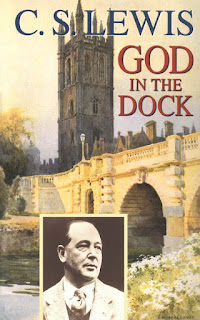Historian Stephen R. Haynes wrote an account
of the effect of the civil rights movement on churches in the Memphis
area for Oxford Books. One particular chapter has special relevance
for the PCA, and that is chapter 12: “A Season of Prayer and
Corporate Repentance”: Wrestling with the Past at Independent
Presbyterian Church (IPC). Those in the PCA may recognize that Independent
Presbyterian in Memphis is a church in the PCA. Below is my reflective review of that chapter.
A Summary of
the Chapter:
Independent Presbyterian
Church (which given Presbyterianism's connectional nature seems an
oxymoron) began in schism over the move towards integration by way of
rotational session membership (to get the resistance elders out
presumably) by Second Presbyterian Church. 340 persons gathered for
worship in the Plaza Theater in East Memphis in 1965. In other words,
Independent Presbyterian Church (IPC), began its existence in a
sinful resistance to the doctrine of the image of God in all persons,
and the unity not only in Adam's blood, but Christ's blood.
By the 1980s, the new
members knew little of the founding principles of IPC. A pastor named
Sartelle seemed to be aware of the past of the church, but largely
ignored it, often working at odds with its spirit in mission projects
in Memphis across racial lines.
When John Wilfong in the
1980s began bringing in African Americans in outreach opportunities,
the past began to come into focus. As IPC became more involved in the
community, the reputation and history of the church, known in the
community, became a sore point of shame. During the Sartelle tenure,
the segregation policy was quietly rescended, but nothing publicly
stated. IPC joined the PCA in 2000, and Sartelle retired in 2005.
When a new pastor
named John Hardie took over, he mentioned parenthetically that the Bible
does not ban interracial marriage. When conversations arose from that
comment, Hardie called for repentance for those who held views
against interracial marriage in the church. Eventually after a
controversy and tension arose, Hardie resigned, and the session
adopted rotating elder terms at IPC, like SPC had done years ago.
Eventually with a new session and new pastor, IPC called for
corporate repentance in regards to its past policies in 2012.
RELEVANCE:
To each of my readings, I
hope to give some reflections to how this might be relevant to the
current question before the PCA in regards to a denominational
repentance. My numbered reflections on this text's relevance for the current discussion on race in the PCA:
FIRST: It is significant
that IPC's racial sins preceded their membership in the PCA by 35
years. Also worth noting was that one pastor in practice reversed course by his actions, but
without a public statement and acknowledgment by the church in words. Thus the next
pastor tripped on landmines he didn't know existed.
SECOND: Even if actions of a body
have changed, the reputation of a church can be hurt by past actions
and sins of the corporate body, especially if those were public
actions. Thus, public actions cannot be merely reversed by private
and secret actions.
THIRDLY: The acts that
were repented of originated in the body that committed them. IPC
repented for their actions as a church, just as individuals were
called on to repent of their actions as individuals. Absent from this
process was confessing the sins of other courts (presbytery or
general assembly). The session confessed and turned from their
policies that their body had done. Individuals turned from their
actions. A lesson to be learned: Confession and repentance should be located at the level in the body
that the offense occurred.



